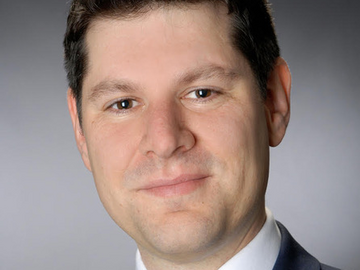Global China Conversations #22
German Research Cooperation: Creating Knowledge for or with China?
Topic
Scientific cooperation with China raises numerous questions and challenges. Transparency and openness in cooperation, especially with regard to the exchange of research results and data, are mutually beneficial. At the same time, however, there may be differences in ethical standards, intellectual property regulations and measures to ensure research integrity. The close interconnection of China's scientific and economic sectors can also potentially lead to conflicts of interest. This repeatedly leads to security concerns on the German side regarding the theft of intellectual property and the possible use of scientific findings for military purposes. Against this background, various discussion questions arise: How can transparent and responsible research cooperation with China be shaped? What mechanisms should be developed to ensure ethical standards and the protection of intellectual property? How can potential conflicts of interest between scientific cooperation and economic interests be managed? These questions form the starting point for a constructive dialogue on the design and orientation of German research cooperation with China.
Program
The event consists of different impulse lectures followed by a discussion.
The Global China Conversation #22 will be held in German.
Literature
The impulse lectures refer to the following publication:
Speakers

Matthias Stepan
Matthias Stepan heads the research project "Universities as Actors in Dialogue with China" at the Ruhr University Bochum and is responsible for knowledge management in the EU-funded project "China Horizons". Over the past fifteen years, Matthias Stepan has worked in various capacities at the interfaces of politics, science, civil society, and business on and in China. From 2019 to early 2023, he headed the Beijing office of Stiftung Mercator, and from 2014 to 2019 he was part of the management team of the Mercator Institute for China Studies (MERICS). He has also worked as a guest lecturer, junior expert at the EU-China Social Security Reform Cooperation Project and at a large German company in China. His list of publications includes academic papers in major journals, highly regarded project reports such as his analysis on the development of China competencies in Germany and policy papers.
Sascha Klotzbücher
Sascha Klotzbücher completed his doctorate at the University of Vienna, where he also habilitated in Sinology in 2017. After managing the professorship for "Economy and Society of Modern China" at the University of Göttingen, he is now Associate Professor at the East Asian Institute at the University of Bratislava in Slovakia and Fellow at the Institute of East Asian Studies at the University of Vienna. In intensive field research in China, he dealt, among other things, with rural health care in the Kazakh-Chinese border region of Xinjiang as part of an FWF project (2005-2010) and with family memories and intergenerational transmission of memories of the Cultural Revolution in Wuhan (2007-2012). The results of this research are published in the book "Long Shadows of the Cultural Revolution: A Transgenerational View of Politics and Emotion in the People's Republic of China". Research visits have taken him to universities in Taiwan, the PRC, and the US, including Peking University, National Chengchi University in Taipei, and Stanford University. He is co-editor of the open access “Journal of the European Association for Chinese Studies”.
Moderation

Finn Mayer-Kuckuk
Finn Mayer-Kuckuk is a business journalist specializing in East Asia. He heads the editorial team of China.Table, the daily professional briefing for experts in business, science, politics, and organizations. Among other things, he has worked as a Beijing correspondent for the Handelsblatt and the DuMont Group and later represented several media as a business correspondent at the Federal Press Conference in Berlin.
